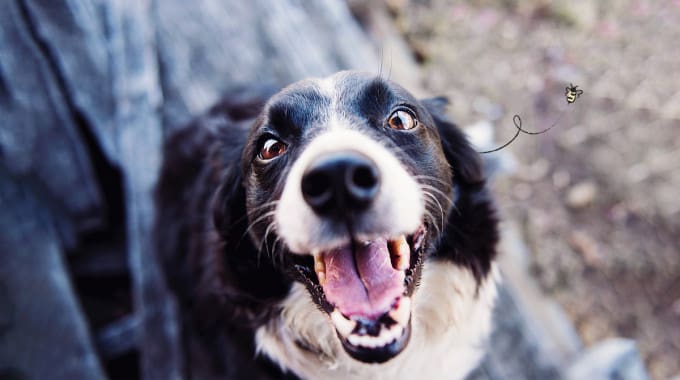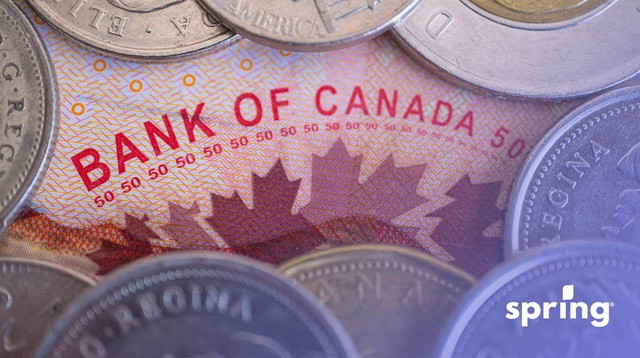But how much does it really cost to own a pet, and can you afford one? Here we break down pet-related expenses to help you budget ahead.
Should I Rescue a Pet or Buy One?
When you’re thinking about getting a cat or dog, adopting seems like the more budget-friendly choice. While pets from reputable breeders can cost thousands of dollars, an animal at a shelter is usually well under a thousand dollars.
Shelters charge in the range of $500 to $1000 for a dog/puppy and $100 to $300 for a cat/kitten. For most rescue agencies, this fee covers the cost of initial vet check-ups, deworming, vaccinations, microchips, and spaying/neutering, or about $500 dollars of care and treatment.
So, you should adopt, right? Well, it depends. Rescued animals are every bit as wonderful as ones from breeders, but you often don’t know the animal’s background. This may mean your pet has unexpected health or behavioural issues that can cost money to address.
If you do choose to buy, do your research. There are puppy and kitten mills advertising themselves as breeders and sellers misrepresenting breeds. Like rescues, these animals can also have unexpected issues.
Ways to Buy a Dog in Canada
As we mentioned, adoption is the most recommended way to get a pet in Canada. That said, some people do choose to go with a breeder if they’re looking for a specific type of dog. When going this route, though, you need to be sure that you’re purchasing from a licensed breeder. This not only protects you but helps ensure that only licensed breeders continue to breed.
Cost of a Kitten
The cost of a kitten in Canada is based on the breed as well as if you adopt or purchase it. On average, though, the cost is less the $150, but it can go upwards of $700.

Budgeting for Your Pet
Pet Essentials
Your new pet will need a collar, leash, bed, toys, bowls, brushes, and other miscellaneous items. When you first buy your pet, you’ll spend $100-$200 on these essentials. If your dog is a toy destroyer, you might need to spend that much yearly, while a smaller pet’s toys might last a couple of years before needing to be replaced.
Pet Training
So, let’s say your new pet does have behavioural issues or you think puppy classes would be helpful.
For dogs, you can expect to pay a minimum of $30/hour for six to eight-week group training sessions, and $45 to $120/hour for private dog training. At a minimum, you’re looking at spending $180 to $270 on training.
As for cats…well, they don’t usually require much training – or respond to it.
Pet Grooming
Grooming: it’s not just for poodles. Many breeds of dogs and cats require regular grooming, and if you can’t do it yourself, nail clipping.
Grooming can cost anywhere from $50 to $250 depending on the breed and size of your pet. Cats usually only need bathing or grooming twice a year, while dogs may need it every four to six weeks.
Nail trims range from $10 to $35 per visit and your cat needs their nails trimmed every two months, if not more.
Dog Walking & Daycare
The pandemic has seen a rise in working from home, but as offices slowly reopen, pet owners may need to find a dog walker or doggy daycare. Doggy daycares charge about $30 to $50 per day and dog walkers charge about $25 per walk.
This is one area where cats have the upper hand (sorry, upper paw), as they can handle long stretches alone.
Pet Food
According to Statista, Canadians spend an average of $1,132 per year on dog food and about $544 per year on cat food. Like other pet costs, you can buy cheaper brands, but be sure to read the ingredients list. In addition to food, your pet will need treats and chews, which can easily cost $10 per packet or single chew.
Travelling
Though your friends or family might care for your pet while you’re away, you can’t rely on that. Any time you travel, you should factor in the cost of pet boarding or sitting.
Nightly boarding rates start at about $30 for small dogs and about $40 for medium and larger dogs. Cat boarding is slightly cheaper at about $20 to $45 per day. Boarders often offer lower rates for two pets and longer stays.
Many pet owners prefer sitters, especially for cats, since the animal won’t have to leave the comfort of home. Pet sitting rates vary as most sitters work independently, but according to talent.ca, pet sitters charge an average of $20 per hour in Canada. A review of rates on the popular site rover.com shows that overnight sitters charge $35 to $85 per night for dogs and $20 to $60 per night for cats. From the same site, drop-in visits for cats range from $10 to $45 per one-hour visit.
If you decide to travel with your pet, only small animals can accompany you in the cabin. WestJet and Air Canada each charge $50-$118 for carry-on pets. For any pets that need to fly cargo, expect to pay in the range of $245 to $650.
For a two-week vacation, you’ll need to budget about $500 to $750 for pet sitting and $400 to $600 for boarding.
Initial Pet Costs
Dogs
Adoption fee / Purchase price |
$200 – $5000 |
Initial supplies |
$100 – $200 |
Vaccinations |
$300 – $500 |
Spay/Neutering |
$200 – $350 |
Microchip |
$40 – $60 |
Training |
$180 – $270 |
Total |
$1020 – $6380 |
Cats
|
Adoption fee / Purchase price |
$100 – $2500 |
|
Initial supplies |
$100 – $200 |
|
Vaccinations |
$190 – $300 |
| Spay/Neutering |
$100 – $400 |
|
Microchip |
$40 – $60 |
|
Total |
$530 – $3460 |
Annual Pet Costs
Dog
Food |
$600 – $1000 |
Treats |
$75 – $200 |
Dental treats |
$50 – $150 |
Vet check-ups |
$80 – $150 |
Flea & tick prevention |
$140 – $300 |
Heartworm prevention |
$40 – $115 |
Toys, poop bags, misc. supplies |
$50 – $150 |
Dental care |
$175 – $700 |
License (annual) |
$25 – $50 |
Total |
$1235 – $2815 |
Additional Costs (dog)
| Boarding/Pet Sitting (two weeks) |
$420 – $1190 |
| Grooming (6 times per year) |
$300 – $1500 |
| Walks/Daycare (twice a week) |
$2,600 – $5200 |
| Total Annual Costs | $4555 – $10,705 |
Cat
Food |
$300 – $550 |
Treats |
$50 – $100 |
Vet check ups |
$75 – $150 |
Flea & tick prevention |
$100 – $250 |
Heartworm prevention |
$150 – $300 |
Toys, misc. supplies |
$100 |
Litter |
$100 – $500 |
Nail cutting (six times a year) |
$120 – $420 |
Total |
$995 – $2270 |
Additional Costs (cat)
| Boarding/Pet Sitting (two weeks) | $280 – $840 |
| Grooming/Bathing (twice a year) | $100 – $200 |
| Dental Care | $400 – $1000 |
| Total Annual Costs | $1775 – $4310 |
Monthly Cost per month for Dogs
Per month, the cost of owning a dog ranges, but on average you’re looking at between $100 and $400 per month, depending on your pet. Add in the vet visits and everything else, it can go as high as $4300 per year.
How to Save Money on Pets
It’s clear that pet ownership can get expensive, but by being sensible and savvy, you can reduce how much you spend on your pets.
1. Buy Second Hand
The idea of a gently pre-slobbered Kong might be gross to humans, but dogs don’t care one bit. Other supplies, like kennels, beds, bowls, leashes, and carriers can also be found in thrift shops and the Facebook marketplace for the fraction of their original costs. Check your local Buy Nothing Group on Facebook; members often have extra pet supplies that they’re happy to pass along.
2. Repurpose “non-pet” Products
Brands know that consumers can’t resist spoiling their fluffy family members. You’ll often pay a premium for something sold for pets when you could buy something similar for humans for less. For instance, you could spend $200 on a memory foam pet bed, or you could look for a used futon or put a pillow in a basket.
Cats are notorious for ignoring a toy for the box it came in, so remember you don’t need to spend big bucks to entertain them. Scrunched-up tinfoil, ping pong balls, yarn, and old toilet paper roll – these are all things that cost next to nothing and will keep cats happy for hours.
3. Buy in Bulk and Shop at Discounts Stores
Large bags of pet food, treats, and litter are cheaper by weight than smaller bags, especially if you can shop somewhere like Costco. If large bags are a bit much for your pet or your space at home, see if you can split it with a friend.
Stores like Winners and Marshalls sell pet toys, beds, and accessories at a much lower cost than pet shops.
Also check if pet stores and brands have sales, coupons, or promotions before replenishing your supplies. It’s also worth asking if your usual shop has loyalty programs.
4. DIY What You Can
If you have the time, you can save money on treats and food by making both yourself. Roasted sweet potatoes are an easy-to-make dog treat and cost considerably less than pre-packaged treats. Likewise, dehydrated meat is pricey at a shop, but much cheaper to do on your own. You may have to buy a dehydrator, but it will pay itself off in no time.
It’s also possible to groom your pet at home, especially if you start when your pet is young. There are lots of resources online including YouTube videos and walk-through tutorials to help you learn how to trim fur and clip nails.

Veterinary Costs
Annual checkups cost anywhere from $150 to $800 depending on the treatments and vaccines your pet needs. But checkups can be planned; the problem lies in unexpected illness and injuries with unpredictable price tags.
Things like a broken limb or gastrointestinal obstruction can require blood work, scans, and surgery, amounting to thousands of dollars in bills.
Veterinary dental treatments are also expensive, usually starting at the $500 mark. In fact, Statista found that while food is the largest cost for dog owners, cat owners’ biggest bills came from dental care, clocking in at an average of $652 per year.
These costs are why many owners opt for pet insurance.
Who is the Best Pet Insurance Provider?
Today, many people pay into pet insurance plans to prevent paying unexpected and large sums during pet emergencies. Before choosing a pet insurance plan, carefully review what types of treatments, injuries, and ailments are covered, as well as what issues are considered pre-existing. Also important are the deductible and the maximum coverage.
Trupanion is one of the most popular providers because of its flexible plans and no-limit model. You can choose a deductible from $0 to $100 and Trupanion covers eligible conditions at 90%, including hospital stays, diagnostic tests, and medications. They also cover any injury or illness that is eligible and not pre-existing, and don’t exclude any conditions or breed-specific ailments.
Petsecure covers 80% of the accident, dental, and condition costs per year. Their plans are less customizable than Trupanion, offering only the option of $100 or $200 deductibles for cats and $100 and $300 deductibles for dogs on most of their plans. Their most popular plan, Secure 2, annually covers up to $2,500 per accident and $2,500 per illness.
Peppermint covers up to 80% of expenses and offers $100 deductibles. Annually, the Base plan covers $1,500 per illness, $1,500 per accident, and $350 for alternative therapy, behavioural therapy, and medical devices. The Plus Plan also covers $350 for alternative treatments as well as up to $2,500 for illness and accident each.
Does Costco Do Pet Insurance?
Pets Plus Us insurance is pet insurance offered by Costco. It offers an Accident Plan and an Accident + Illness Plan. The Accident plan covers 80% of costs up to $5,000 annually for injuries like a broken bone, a cut, or being hit by a car. The Accident + Illness Plan is more comprehensive, covering both accidents and the diagnosis or treatment of illnesses.
You can choose between $7,500 or $15,000 annually and coverage of 70%, 80%, or 90% of costs. Pets Plus Us does include more unique features compared to other insurance options. The deductible is annual, meaning it only has to be paid once per year, even if your pet has multiple illnesses or injuries in that year. You won’t be charged the deductible if you don’t need coverage.
Free of co-pay or deductible costs, Pets Plus Us also offers $1,000 for:
- Kennel boarding fees if you are hospitalized due to an accident or illness and you cannot care for your pet.
- Holiday-trip-cancellation coverage if your pet requires emergency, life-saving treatment resulting in the need to cancel your vacation.
- Lost pet advertising and reward
- Cremation or burial costs for your pet
Costco Gold Star members receive a monthly discount of 10% and Executive Members receive a monthly discount of 15%.
Which Pet Insurance Provider is Right for Me?
Trupanion is the most expensive, but it is also the most comprehensive and customizable. The Peppermint Base plan is the cheapest option, but the maximum coverage is a bit low. However, between the Peppermint Plus and the Petsecure Secure 2 plan with a $300 deductible, the Peppermint Plus offers better value.
It’s worth noting that while Peppermint charges the same price for small to large dogs, extra-large dogs like Doberman and Bernese Mountain Dogs raised the monthly rates.
To give you an idea of how much you will be paying, here’s a monthly comparison based on 8-week-old, unneutered, male animals.
|
Plans |
Lab (Dog) |
Tabby (Cat) |
|
Trupanion $200 deduct. |
$227.10 |
$70.65 |
|
Trupanion $1000 deduct. |
$90.10 |
$31.02 |
|
Petsecure $100 deduct. Secure 2 Plan |
$70.77 |
$40.20 |
|
Petsecure $300 (dog)/ $200 (cat) deduct. Secure 2 Plan |
$57.12 |
$32.09 |
|
Peppermint Base Plan |
$31.59 |
$24.78 |
|
Peppermint Plus Plan |
$55.37 |
$38.80 |
|
Costco Accident & Illness $200 deduct. 80% cover $7500 annually |
$83.70 | $49.53 |
|
Costco Accident & Illness $200 deduct. 80% cover $15,000 annually |
$99.70 | $58 |
Can I Get a Pet Loan for Vet Bills?
If you don’t have pet insurance, have a tight budget, or your pet’s condition isn’t covered on insurance, a personal loan may be your best option. Spring Financial offers personal loans up to $35,000 and you can apply online. With no hidden fees and same-day e-transfers, it’s a secure way to get the extra money you need to look after your pet.
Learn more about personal loan options today.








